#Venezuela
Gas War: Biden Admin Lifting Oil Sanctions On Venezuela
The United States is rethinking its relationship with oil producers in Venezuela and lifting sanctions. On Saturday, The Treasury Department said it would allow Chevron to produce and export oil from the region if the country agreed to restart diplomatic talks with opposition groups. The theory that U.S. leadership wants to see more oil produced to help drive down prices appears valid. But the resulting action still seems at odds with the Biden administration’s lofty environmental goals and is unlikely to move the needle on fuel pricing anytime soon.
Alright, Let's Talk About Fuel Prices and How We Got Here
Fuel prices have, like most other things, become totally ridiculous. In the United States, the average rate for a gallon of gasoline has eclipsed $4.00 for the first time in a decade. Though what’s probably the most alarming is how quickly it happened. Plenty of Americans could still find fuel for under $2.00 a gallon in April of 2020, meaning we’ve seen prices effectively double within two years in the United States. Meanwhile, European nations more accustomed to lofty fuel bills have been sounding the warning bells (especially in regard to diesel) for months.
Despite the issue existing long before Russia invaded Ukraine, the war has become the de facto explanation among politicians for why you had to swap to less-fancy dog food and off-brand soda to keep the truck gassed up. This is also influencing the government’s response to how to handle the present fuel crisis, which looks as if it’ll be getting worse before it gets better. But let’s take a look at how we got here before we dive into what’s being done (or not done) about it.
GM Fires Its Venezuelan Workforce, Many by Text, as It Flees Country
Last week, General Motors’ long-idled Venezuela assembly plant fell into the hands of the country’s autocratic government, sparking the automaker’s exit from the strife-ridden nation.
With its material assets out of its hands, the automaker’s Venezuelan subsidiary jettisoned the plant’s entire 2,700-person workforce today, Reuters reports. It did so in as abrupt a manner as the takeover itself. Meanwhile, the government wants to chat.
After Car Buying Became Impossible, Union Members Seized GM's Venezuela Plant: Report
GM Claims Venezuela Illegally Seized Its Factory, Ends Operations in the Country
If your news diet occasionally strays outside of the automotive realm, then you know that Venezuela is going through a “transitional phase.” The country’s economy is experiencing uncontrollable inflation, unemployment is around 25 percent, food is scarce, and public health services have become nonexistent. There is also more political turmoil than any single country could possibly handle. Venezuela’s capital of Caracas is now a hotbed of increasingly violent protests, as critics of President Nicolas Maduro are met with heavily armed security forces.
The opposition blames Maduro and the Supreme Court for turning the country in to a dictatorship after dissolving the National Assembly’s ability to govern. There are also claims that the leftist government is overstepping its bounds when it comes to property rights.
While you wouldn’t expect an automaker to weigh in on the matter, General Motors is accusing Venezuelan authorities of the illegal seizure of a plant in the industrial center of Valencia and has vowed to “take all legal actions” necessary to defend its rights. It’s also ceasing operations within the country.
Ford's Profits in Latin America Wiped Out as Venezuela Devalues Currency by 44%
Ford Motor Company assembly plant in Valencia, Venezuela.
Ford Motor Company announced last week that instead of making money in Latin America this year, it will likely lose $350 million in the region because the government of Venezuela devalued its currency, the bolivar, by 44%. Ford is currently holding more than $700 million in bolivars that it cannot exchange or repatriate. The Venezuelan government is trying to conserve its hard currency reserves and it will not give Ford dollars for bolivars. FoMoCo, which has built vehicles in Venezuela since 1962 and currently operates an assembly plant in Valencia, really doesn’t have any options other than to write down the loss. The car company can’t very well try to exchange currency on the black market. Other international companies, including Toyota, face similar situations with their operations in Venezuela.
Venezuela's Gasoline Prices May Rise to $1.60 a Gallon, From 5 Cents
As Venezuela faces an economic crisis that is depleting government coffers, President Nicolas Maduro is threatening to end something many citizens of that oil producing country consider to be their patrimony, incredibly cheap gasoline, the equivalent of 5 U.S. cents per gallon. That price hasn’t changed in almost two decades. In 1989 the price of gasoline was raised, prompting deadly rioting that went on for days and killed over 300 people. To keep the retail price that low, the government subsidizes gasoline to the tune of more than $12.5 billion a year. The result is that Venezuelans aren’t interested in small, clean, fuel efficient cars. Big old sedans, 1970s era trucks and newer SUVs dominate Venuzuelan roads, compounding both the amount of subsidies needed and the smog over Caracas.
GM Wants To Double Its Output - In Venezuela
This makes Hugo Chavez happy: GM wants to more than double its production in the Caribbean worker’s paradise of Venezuela. At least that’s what Chavez told Reuters:
“Asked to provide journalists with the details, Venezuela’s Industry Minister Ricardo Menendez said GM planned to increase its production of cars in the country to 120,000 units per year, up from almost 50,000 now.”
The minister claims that GM furthermore plans to use Venezuela as a production and export hub for auto parts, to be used in Venezuela “and for export to neighboring Brazil and the Caribbean.” We would know a Caribbean island that needs parts badly.
Chatty Chavez added that Renault also is interested in building cars had also expressed an interest in building cars in the oil-rich nation.
P.S.: I hereby apply for tghe post as Venzuelan Propaganda Minister. Free sample: “Venezuela – We put the car in the Caribbean”
Best Selling Cars Around The Globe: Venezuela Loves America – Really!
After landing in Botswana, Malta and Bangladesh over the last few weeks, we now travel half-way through the world again to arrive in Venezuela.
If you cannot stand one more Hugo Chavez-related article, that’s ok I have prepared info about car sales in 155 other countries that you can explore in my blog, so click away!
Now the most paradoxical element of the car landscape in Venezuela is that by and large it is dominated by American brands…
But how is that possible I hear you ask with vigor?
Review: The Iran Khodro Samand (Venezuelan Spec.) No, You Can't Have It
When I graduated as an engineer, little did I know that I would be going to end up working inside a car (or truck) assembly site, even less so in one controlled by a rogue government that has a big bull’s-eye painted on it on a map in Langley, Virginia.
But life is what it is, and usually it tends to bring people to interesting situations and places. Still not convinced? Go and read one chapter of Niedermeyer Sr biography, Herr Schmitt’s autobiography, or any of Baruth’s racey adventures.
So in one of the hair needle turns of my life, I ended up spending some time around Iran’s national car. It wasn’t in Iran, but under Hugo Chavez.
Crude Oil And Lazy Workers: Details About Chavez's Threat To Oust Toyota
The Christmas season would be a reason to be merry, would it not be for Hugo Chavez. More details about his expropriation threats emerge. Turns out, Chavez did not just threaten to kick out Toyota for being lackadaisical in the production of “rustic” vehicles.
“President Hugo Chavez told foreign automakers Wednesday to share their technology with local businesses or they will be told to leave the country,” writes the Boston Globe. Chavez gave the ultimatum in wholesale fashion to Ford, General Motors, Toyota and Fiat. Implied, the ultimatum is also meant for Fiat-controlled Chrysler, for Mitsubishi, Mack and Fiat-owned Iveco. All of the above have production facilities in Venezuela. All are at risk of instant deportation.
Chavez To Toyota: Work Faster, Or Else!
Venezuela’s, well, President Hugo Chavez took a page out of the U.S. government’s playbook, and ordered Toyota’s local assembly plant to make more cars, pronto. If the Japanese don’t produce an adequate number of vehicles designed for rural areas, Chavez will expropriate Toyota and kick them out of Venezuela.
According to this morning’s indignant Nikkei [sub,] Chavez said his socialist government is going to apply strict quotas on the number and types of vehicles firms can produce. He ordered an immediate inspection of Toyota’s facilities to see how many “rustic vehicles” they are currently producing. (“Rustic,” not “rusty.”)
“They’ll have to fulfill (the quotas), and if not, they can get out,” said Chavez during a televised address. “We’ll bring in another company.” And what company would that be?



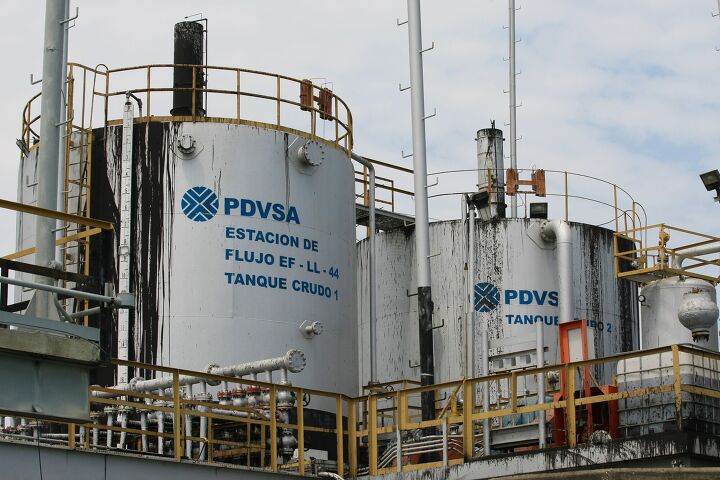
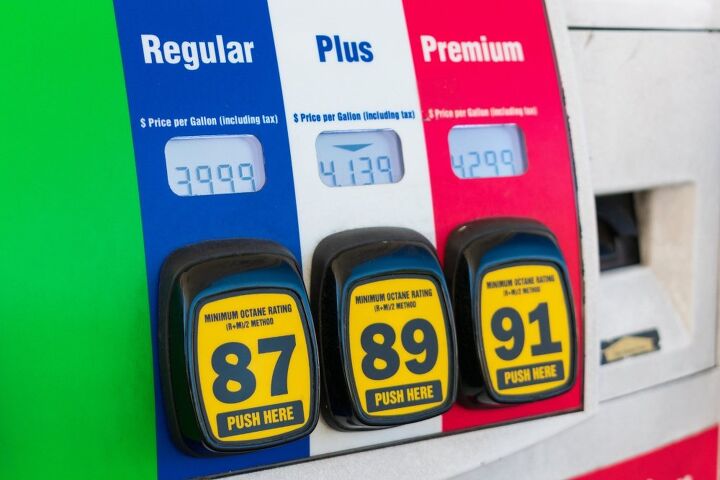

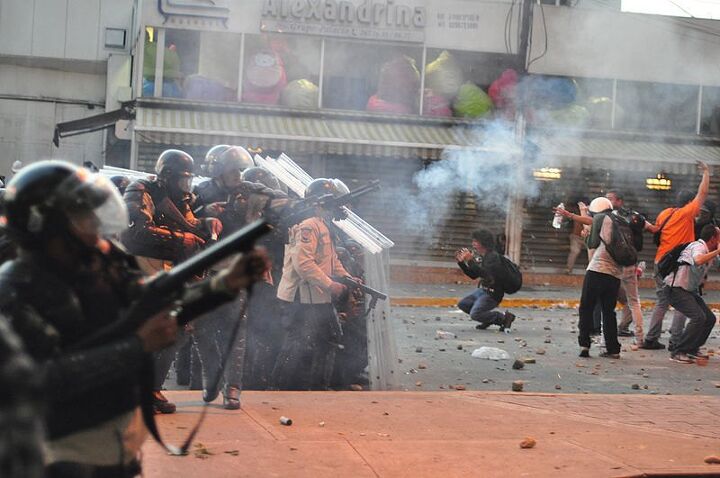

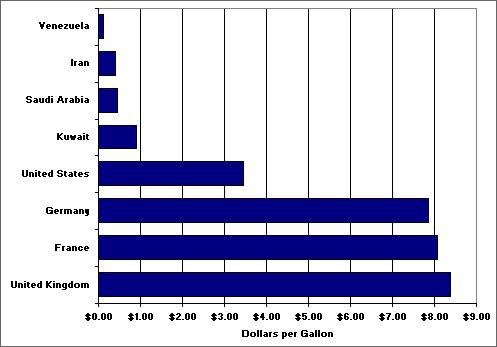


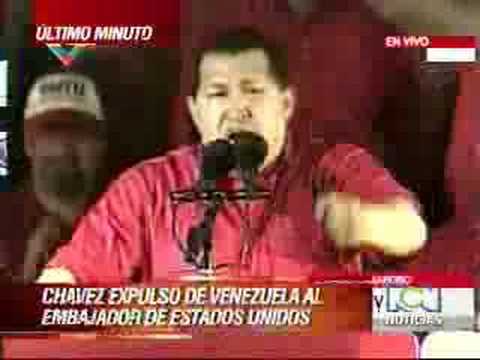
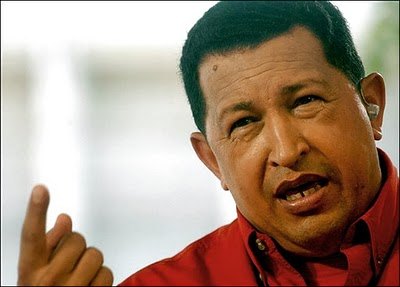












Recent Comments